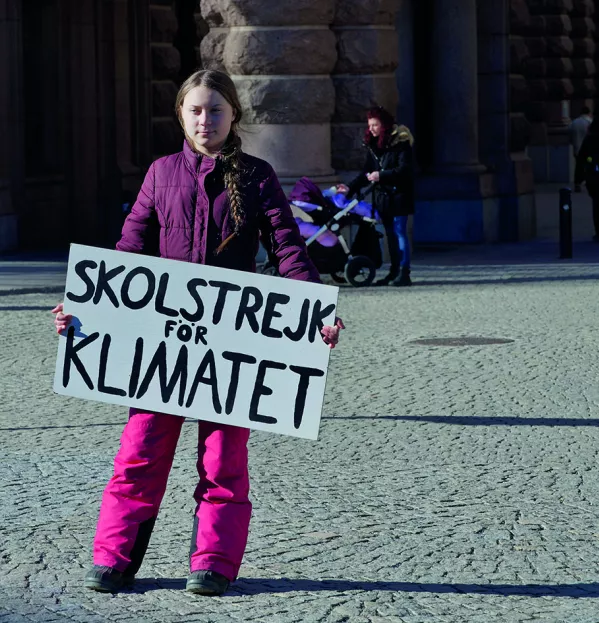Greta Thunberg proves just how capable autistic children are

There’s something wonderful about the fact that it has taken a teenager with autism to break through the impasse on environmental change and broadcast the message of the world’s climate scientists that our Earth really is in trouble.
For 16-year-old Greta Thunberg, having Asperger’s has helped her cut through the ocean of crap from climate-change deniers. “I don’t easily fall for lies, I can see through things,” she said in a BBC interview.
What has not been so wonderful, however, is the ugly reaction towards her from some commentators. One even criticised her “monotone voice” and said she sounded like a “millenarian weirdo”. Leaving aside that she was speaking a second language more fluently than many of her critics do in their first, she is a child, and an autistic child at that. In any other circumstance, such bullying would be a safeguarding issue.
Thunberg herself is very much aware of her condition but views it positively. “It makes me different, and being different is a gift, I would say,” she told the BBC. “It also makes me see things from outside the box.”
It’s a refreshing attitude that we could all take on board. In schools, autism is often seen in deficit terms and all autistic people as a homogenous group. This is perpetuated by the way special educational needs and disabilities assessments focus on what a child needs support with. But what about all the things they can do?
Shouldn’t we frame children in positive terms like Thunberg does? Psychologist Nancy Doyle believes the answer lies in talking in ways that make sense and in language people can understand, not the often predictable “psychobabble” that hides what children can do and hinders understanding. “One way to do this with adults is to talk about skills in the context of jobs, for example, to say ‘This skill might help you with cutting hair’ or ‘This means you have a great understanding of how things are put together’,” she told Tes last year. “Whereas for children, you might say ‘Hey, you’re great at visual spatial reasoning. That will help you with design technology and science’.”
It’s an approach that would pay dividends for everyone. And perhaps in future it’s not the children who will need a growth mindset but the adults, when assessing students’ capabilities and preparing them for life beyond school.
We are going to need a big shift in what skills young people will need for the world of work, especially when they are going to have a career that will stretch to some 50 years.
It is the ability to deal proficiently with both people and information - that is, both knowledge and interpersonal skills - that will be most in demand from employers (see pages 54-61). It will be the things that differentiate us from machines, the very things that make us human - perceived flaws and all.
In other words, you will need to know your stuff but, even more importantly, know how to put it to good use. “People are not their qualifications” is how Andy Dickerson, a researcher from the Centre for Vocational Education Research at the London School of Economics and co-author of a new report, puts it. He says their value to employers comes from how they utilise the skills and knowledge they have acquired, not from the qualifications they have achieved.
The skills and abilities children have or can acquire are not always obvious. Sometimes they come as a wonderful surprise and can change people and the world. So let’s be inspired by the courageous Greta Thunberg, who this week addressed British politicians and even made Michael Gove feel guilty and pledge action. Now that really is a gift.
This article originally appeared in the 26 April 2019 issue under the headline “Here’s an approach to autism that’s not just good - it’s Greta”
Register with Tes and you can read two free articles every month plus you'll have access to our range of award-winning newsletters.
Keep reading with our special offer!
You’ve reached your limit of free articles this month.
- Unlimited access to all Tes magazine content
- Save your favourite articles and gift them to your colleagues
- Exclusive subscriber-only stories
- Over 200,000 archived articles
- Unlimited access to all Tes magazine content
- Save your favourite articles and gift them to your colleagues
- Exclusive subscriber-only stories
- Over 200,000 archived articles